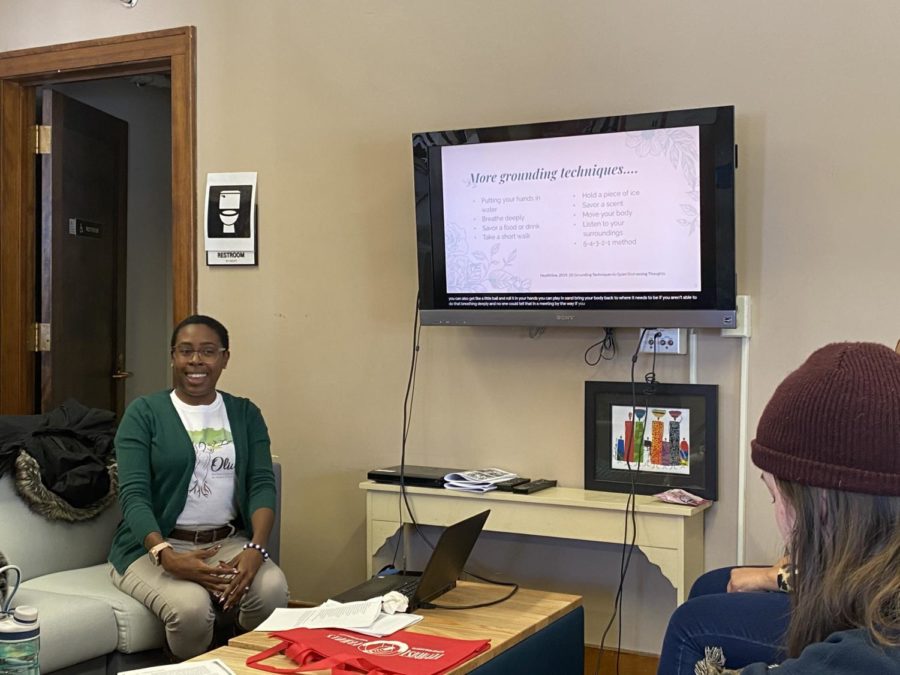Feminist Friday addresses a doulas role in childbearing
Feminist Friday speaker Jazzmine Brooks, the equity and inclusion coordinator for the Office of Equal Opportunity, led a discussion Feb. 14 over “Rural Black Doula Chronicles: Addressing Disassociation of the Body and Mind.”
February 14, 2020
Jazzmine Brooks, the equity and inclusion coordinator for the Office of Equal Opportunity, filled the Sloss House with discussion Friday.
Brooks led the discussion on “Rural Black Doula Chronicles: Addressing Disassociation of the Body and Mind,” given her experience as one of only five black doulas in the state of Iowa and the only fertility doula.
Doulas are not a new concept; they have historically existed all throughout time. While they were better known and recognized as granny midwives, they were health care providers for the poor and rural black woman in times of segregation.
Today, doulas are better known as trained professionals who provide continuous physical, emotional and informational support to a mother before, during and shortly after childbirth, whether that be the woman who conceives, a surrogate or one who adopts.
Some doulas also provide support for the entire family as a whole in the transition to expansion with a new child.
“As a doula that doesn’t have children, folks are like ‘You don’t know the process,’ ‘You don’t know the experience’ but what’s nice about me is that I won’t put my birth story on you,” Brooks said. “I know that for certain the birth story that I will have won’t be put on you. I am looking at people as a whole and not as a part regardless of what their story is they are still a whole person. You are a beautiful being and you are able to do something astronomically out of this world. The concept of being able to develop something in nine months is just crazy when you think about the biological part.”
Doulas are also trained to help with trauma.
Common signs of trauma include having an out of body experience; feeling like a different person at times; feeling like your heart is pounding or you’re light-headed; feelings of emotional numbness or detachment; little or no pain sensations; altered sense of time; not remembering how you got to someplace; tunnel vision; voices in your head; intense flashbacks that feel real; immobility and absorption into fantasy worlds, according to WebMD.
To help lessen trauma and calm someone down, Brooks recommends grounding techniques.
These techniques are “the perfect storm” which include a number of physical movements in the following order: rubbing your palms together briskly while visualizing wind; next snapping your fingers and visualizing rain; then slapping your thighs as though it is pouring and then stomping as though it is thundering before repeating the process backwards.
Another is “chamber breathing” which consists of allowing air to each chamber of the body including the belly, rib cage and upper chest. Additional grounding techniques include: putting your hands in water, breathing deeply, savoring food or a beverage, taking a short walk, holding a piece of ice, savoring a scent, moving your body or listening to your surroundings, according to Healthline.
Next week’s Feminist Friday will feature Charles Wongus, a graduate student in education, and will take place at 1p.m. at the Sloss House where all students, faculty and community members are welcome.







